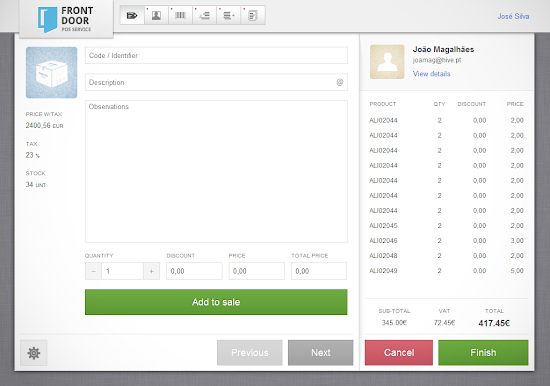Every once in a while there comes a moment in a startup's life that you just know you'll look back on as defining. This is one such moment. Today we announce Frontdoor (http://frontdoorhq.com), our online Point-of-Sale service.

As incredible as it might sound, setting up a Point-of-Sale system today still means a huge investment. First it's the expensive point-of-sale equipment out there, and the overpriced software from before the Internet. Then, you have to add the maintenance costs for that quirky hardware, as well as the (well) paid updates for the software to fix bugs and keep up with legal changes.
Frontdoor lets you sell anywhere from any device, be it PC, Mac, iPhone, iPad or Android. You can start using Frontdoor with just your pocket change, and only pay for what you use. Period. No surprise updates to pay for. No hefty maintenance costs for weird hardware you don't need.
Frontdoor is about user experience, that's why we went to so much trouble to craft each user interface you'll see in Frontdoor. Anyone can build software that does the job, but to make it work in ways that delight you and make your life simpler... that's just beautiful. That's what we did with Frontdoor.
Frontdoor is also about your data. We're going to set the data free from the application silos. You'll be able to use OAuth to securely authorize access to your data, which can then be combined with other information sources. Open up to new, unexpected uses and insights from your data. Frontdoor is about bringing the power of advanced analytics to small and medium business. Business intelligence is not just for the big boys anymore.
Beta starts today. Expect public availability this Spring. So if you know anyone running a store these days, you owe it to them to at least mention the new kid in town.
